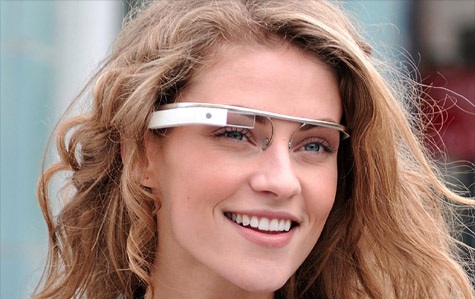

Developers of software for Google Glass will not be allowed to charge fees for their wares or display adverts, according to the documentation for the Google Mirror API, a set of services that transmit information to and receive notifications from Glass devices.
The documentation includes quick start guides, best practices and started projects, but also a set of terms and conditions that make it difficult to guess just how programmers can generate any revenue from their Glassware.
“You may not serve or include any advertisements in your API Client,” state the conditions. “You may not use user data from your API Client for advertising purposes. You may not sell or transmit any user data received from your API Client(s) to a third-party ad network or service, data broker, or other advertising or marketing provider.
Google also says that Glassware cannot be published outside its own distribution channel and that developers cannot demand any fees. This is in contrast to the company’s Android platform in which there are multiple marketplaces and a mixture of free, paid-for and freemium applications.
“You may not charge end users any fees or collect any payments in order to download or access your API Client, or in connection with virtual goods or functionality of your API Client,” it said. ““You may not publish or distribute API Clients outside of the official Google-hosted Google Mirror API Client distribution channel, unless otherwise approved in writing by Google.”
There are also restrictions for developers wanting to create applications where the use or failure of the APIs could lead to death, personal injury or even environmental damage. Permission from Google would be needed to create software for tasks such as the operation of nuclear facilities, air traffic control, or life support systems
The revenue models available to developers remain a mystery at this stage, but it is entirely possible that the terms could change ahead of launch.
The first applications for the project were shown at the South by Southwest (SXSW) festival in Texas last month.
The known functions of the Android-powered headset include voice-to-text messaging, video calls, access to Google’s search engine, email, translation, GPS navigation and calendar. Google Glass is able to take pictures, film video and share content on social networks.
Are you an expert on Google? Take our quiz!
American space agency prepares for testing of Boeing's Starliner, to ensure it has two space…
As UK and Europe develop closer military ties, European Commission says it will invest €1.3…
Zuckerberg seeks to revive Facebook's original spirit, as Meta launches Facebook Friends tab, so users…
Notable development for Meta, after appeal against 2021 WhatsApp privacy fine is backed by advisor…
First sign of shake-up under new CEO Lip-Bu Tan? Three Intel board members confirm they…
Trump's nominee for SEC Chairman, Paul Atkins, has pledged a “rational, coherent, and principled approach”…